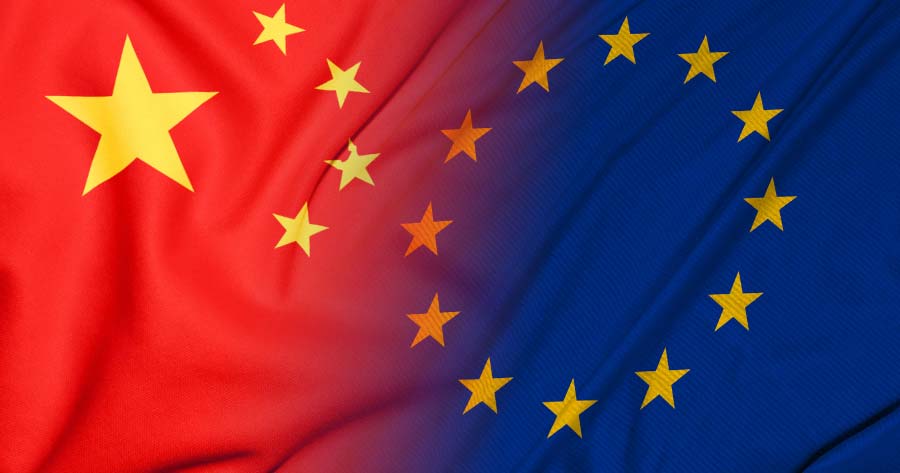China’s Premier Li Qiang and European Commission President Ursula von der Leyen underscored their commitment to cooperation in a meeting held in New York amid ongoing trade friction exacerbated by U.S. President Donald Trump.
The leaders met on the sidelines of the United Nations General Assembly, where von der Leyen stated that trade discussions with China’s second-in-command were conducted “in a spirit of mutual understanding.” She reiterated that the EU’s concerns about export controls, market access, and overcapacity remain well established.
Relations between Beijing and Brussels have been tense for the past two years since the European Commission launched an anti-subsidy probe into Chinese electric vehicles in 2023, which led to a series of investigations into European exports such as brandy, dairy, and pork. However, with both China and the EU facing export pressures from Trump’s protectionist measures, there is growing incentive for both parties to pursue rapprochement.
China’s foreign ministry stated that Li expressed a desire for both sides to “uphold the original aspirations” of their diplomatic relationship, emphasizing the importance of maintaining open trade and investment markets. Li also encouraged the EU to demonstrate “responsibility and strategic independence” at a time of rising global uncertainties.
Negotiations remain complex as Chinese trade officials juggle discussions with both Washington and Brussels, while foreign business groups continue to voice frustration over bureaucratic slowdowns, particularly in areas like rare earth export permits.
Within Europe, the Commission faces its own challenges, having struggled to build consensus among its 27 member states. Recent divisions were evident when a vote on imposing tariffs on Chinese electric vehicles saw ten countries in favor, twelve abstaining, and five—including Germany—opposing.
Diplomats highlight that China has become increasingly relevant to Europe’s strategic considerations regarding the war in Ukraine, with some seeing Beijing’s influence over Russia as a more viable route to peace, especially given Xi Jinping’s ties to Vladimir Putin and China’s role as a crucial economic partner for Moscow.
Von der Leyen said she urged China to leverage its influence to help broker peace and encourage Russian engagement at the negotiating table, though China’s official statement omitted any reference to the conflict. She concluded by underscoring the urgency of diplomatic efforts to send a significant message globally.





